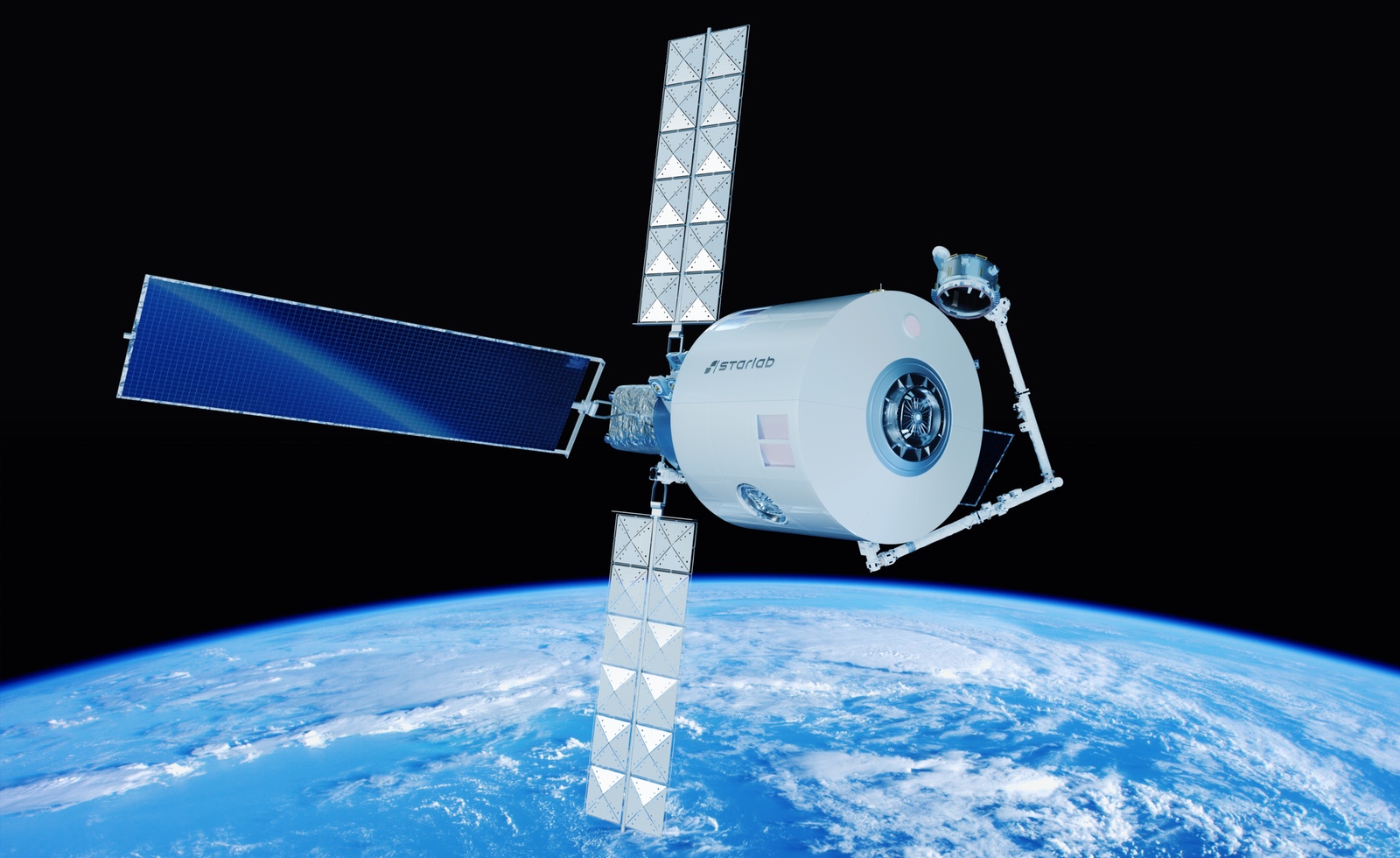
SEATTLE — Voyager Space is joining forces with Airbus Defence and Space on a joint venture for the development of the Starlab commercial space station.
The companies announced Aug. 2 the creation of a joint venture, also called Starlab, that will be responsible for the development and operation of the station. The joint venture builds upon an agreement announced in January where Voyager selected Airbus to provide technical support for the proposed station.
“This transatlantic venture with footprints on both sides of the ocean aligns the interests of both ourselves and Voyager and our respective space agencies,” said Jean-Marc Nasr, head of space systems at Airbus, in a statement. “Together our teams are focused on creating an unmatched space destination both technologically and as a business operation.”
The joint venture is an effort to create a long-term partnership between the companies for Starlab. “We have been working very well together as partners,” said Matthew Kuta, president of Voyager Space, in an interview. “It’s very important in the commercial world to have good long-term partnerships and less of a vendor transactional relationship, so we had discussions about forming the joint venture together.”
Kuta declined to discuss financial details of the partnership, including the share of the joint venture held by each company. However, he noted that the joint venture will be U.S.-led, meaning that at least 51% of the company will be owned by U.S. entities like Voyager Space.
Having a European company as part of the joint venture, though, could make it easier for European governments and organizations, like the European Space Agency, participate on Starlab. European officials have expressed hesitance about paying American companies for flying European astronauts, rather than the barter system used for International Space Station operations among the partner nations.
“We have great relationships with ESA, but clearly Airbus much better relationships,” Kuta said. “It allows us to figure out how we can satisfy those customer demands more directly and successfully.”
He added that he couldn’t speak for ESA’s plans after the retirement of the station, but since that agency has previously ruled out flying its astronauts on China’s Tiangong space station, its only option will be using commercial stations like Starlab. “By partnering with Airbus, we’ll be in a great position to help ESA figure out what works for them.”
Voyager Space, through Nanoracks, received a $160 million Space Act Agreement from NASA in December 2021 to support initial design work on Starlab, one of three such awards NASA issued through its Commercial LEO Destinations initiative. The Starlab team recently completed a system requirements review for the station with NASA, which Kuta said went well.
The focus of Starlab will be on research applications, rather than tourism. The station is designed to fit on a single launch, outfitted on the ground with all the research equipment needed for its customers. “All the things that ISS does is what we’re focused on being able to continue, but with more modern equipment, technologies and capabilities.”
That research interest is coming from both government agencies and companies, particularly in the pharmaceutical sector. The companies are looking at ways to allow customers to start work on facilities they operate on the ISS today, like the Airbus Bartolomeo external payload facility and Nanoracks Bishop airlock, then shift that work to Starlab.
Related
ncG1vNJzZmiroJawprrEsKpnm5%2BifLe72JqenqpdqL2ir8RmmKecXZa2s67UrGScqpWWwaZ5wqikpp2imLaiuIysp5qblWLAta3ToqanZZqktq%2FAjK%2Bcp6ylp7Jw